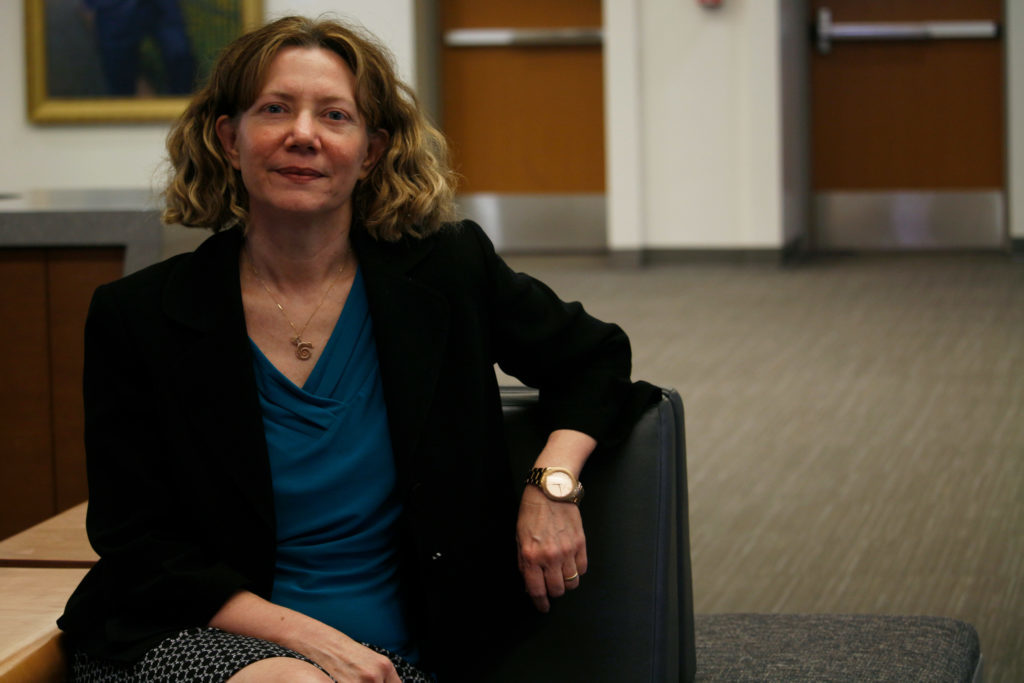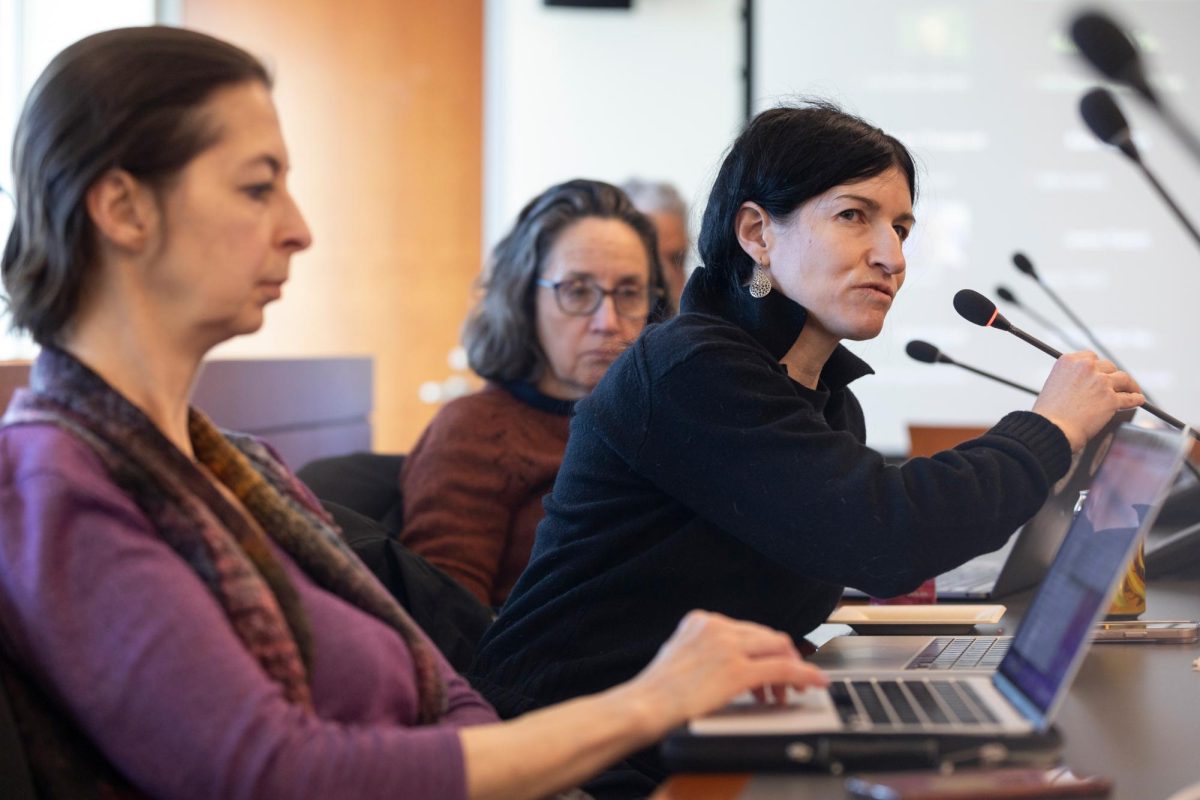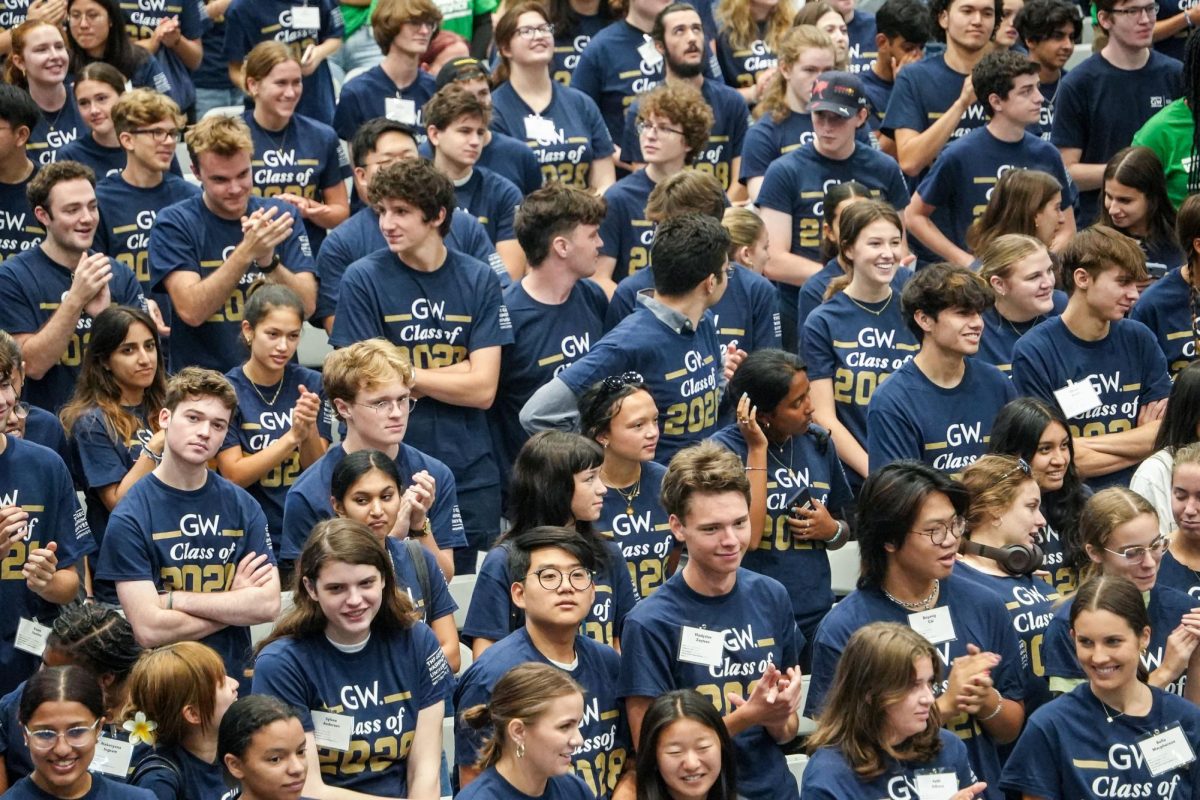The GW Writing Center debuted a virtual writing cafe earlier this month to motivate students to collaborate with peers on writing assignments during the instructional continuity period.
The cafes, which are similar to a virtual study group, accommodate up to 15 students at one time to discuss and work on their writing assignments in the presence of other students over Zoom. Officials said the cafes are designed to help students who face difficulties keeping up with school work and meeting the deadlines necessary for their classes during the COVID-19 pandemic.
Carol Hayes, the director of the writing center and an assistant professor of writing, said staff created the cafes in response to feedback she heard in talking with students, who said they struggle to establish a daily schedule and stay motivated to complete writing assignments on time.
“Those things combined to make me think that we needed to have something where writers could write in the company of others, to have that connection to others,” she said.
Hayes said students briefly discuss the goals they want to accomplish in terms of their writing assignments at the beginning of the cafe. She said the students spend most of the two-hour meeting working individually on their assignments, with time allotted for a break in the middle and a discussion at the end about what students were able to complete.
“You come to these sessions with a specific writing goal in mind, you articulate it to others and then you sit down and you do it,” she said. “The cafes are really about writing, but they’re also about writing in the company of others.”
Hayes said the cafes are offered five days a week at several times to accommodate students in different time zones, with writing center consultants present during each meeting to check in on students’ progress and “provide quick advice” using the chat function on Zoom.
“There’s some accountability there,” she said. “There’s a schedule there, there’s a connection to others and it motivates you to go and do whatever it is that you’ve been stalling on all day.”
Hayes said the cafes are not designed to replace one-on-one tutoring appointments that the writing center continues to offer online but rather to encourage students to get their work done on time.
“It’s not really about providing that kind of tutoring support in the moment,” she said. “It’s really about just giving people the motivation to sit down and write on whatever project they want.”
Anna C, an undergraduate consultant for the writing center who asked her full last name be omitted due to the center’s general academic confidentiality policies, said the cafes have helped keep students on track with their assignments and promote productivity. She said undergraduates have primarily been utilizing the cafes, although the sessions are open to graduate and doctoral students as well on the writing center’s website.
She said the students in the cafes she has hosted were “pleasantly surprised” at how productive they were when in the presence of other students on Zoom.
“I think people are surprised by the positive synergy that comes on, even though it is over Zoom, and it’s over with people who you might not know before,” she said.
Anna C said the cafes have also been helpful to her since she is able to spend time on her own work.
“I like it a lot as a consultant because I’m able to get some of my own work done at the same time, so it’s not like I’m just sitting there watching everybody else do work,” she said.
She said since the cafes began two weeks ago, attendance has been low in the beginning of the week at about three to four students and has increased as the week progresses, reaching around eight students in sessions at the end of the week.
“It kind of depends on where people are in their homework load and things like that, but I have noticed it gets higher toward the end of the week, probably because people want to get started with a productive weekend,” she said.
Olivia, an undergraduate consultant for the writing center who also asked her last name be omitted due to the center’s general academic confidentiality policies, said the cafes were implemented to virtually recreate the experience many students are accustomed to of working at a library or coffee shop with classmates or friends.
She said writing center staff knew students would struggle without the same “academic routine” during the instructional continuity period and hope the cafes can help provide structure in students’ daily schedule.
“Everyone is definitely in a different place in terms of their workload and in terms of their headspace regarding the pandemic, so that’s something that is definitely ever-changing in the cafes that we do have to adapt to,” she said. “But it’s also something that I would argue the cafes actively try and help and try and support.”
Olivia said the virtual cafes cannot fully replicate the experience of working in a coffee shop, but students who have participated in them have said they are helpful.
“I was absolutely surprised and overwhelmed by how quickly people adapted to the cafes and enjoyed them,” she said.








